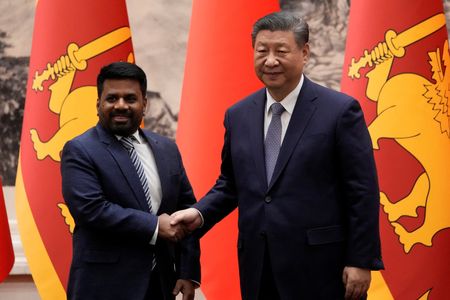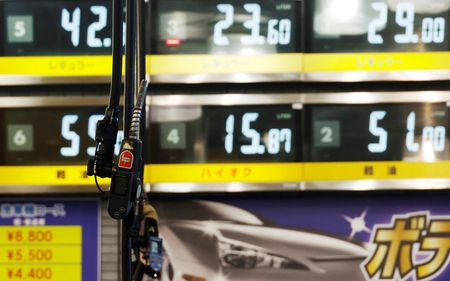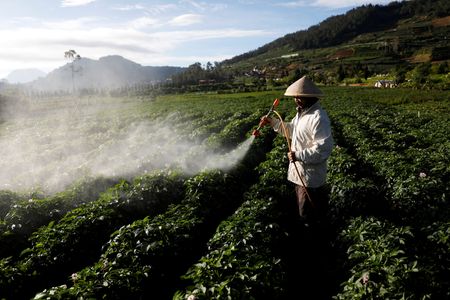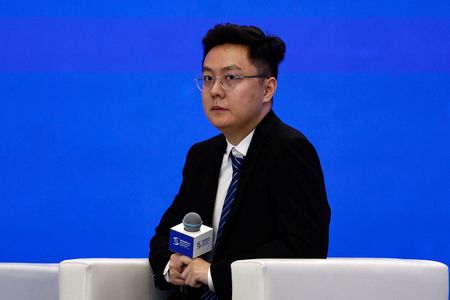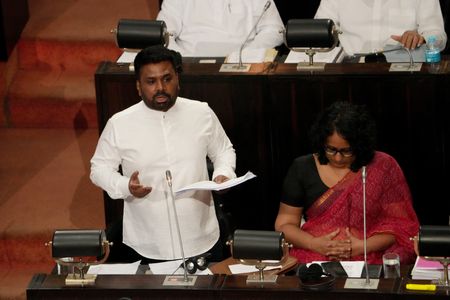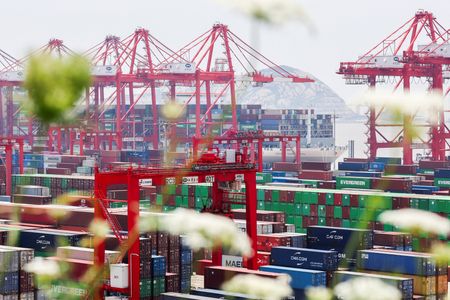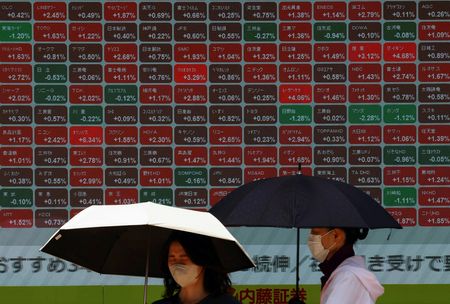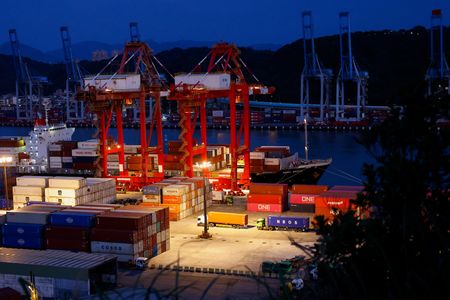By Liz Lee
BEIJING (Reuters) -China and Sri Lanka agreed on more investment and economic cooperation on Wednesday as China’s President Xi Jinping met recently-elected Sri Lankan President Anura Kumara Dissanayake in Beijing.
The countries signed 15 cooperation documents, including agreements on economic and technological development and aligning China’s ‘Belt and Road Initiative’ with Sri Lanka’s 2030 digital economy blueprint.
Specifics of the deals were not disclosed at the signing ceremony.
Dissanayake’s visit to his country’s largest bilateral lender comes after first travelling to regional rival India.
Dissanayake won a big majority in September’s election, pledging to tweak the terms of an International Monetary Fund rescue package, and on his leftist coalition’s plans to fight poverty and graft.
Sri Lanka had been moving closer to China under the previous Rajapaksa government, leaning heavily on Chinese lending to build highways, a port, an airport and a coal power plant as part of Xi’s flagship cross-continent Belt and Road infrastructure initiative.
Colombo secured a preliminary $10 billion bilateral debt deal rework with key lenders including China, Japan and India last June and a $12.5 billion bondholder deal in December.
However, it needs direct agreements with China EXIM Bank and China Development Bank to lock in the deal to continue demonstrating progress to the IMF in restructuring its foreign debt to secure further disbursements from a $2.9 billion IMF bailout programme.
“I am willing to work with you, Mr President, to chart a new vision for the development of bilateral relations and promote new and greater achievements in China-Sri Lanka’s friendship and cooperation,” Xi told Dissanayake on Wednesday, speaking at the Great Hall of the People.
Welcoming more Chinese investment, Dissanayake told his host: “China has supported important and valuable infrastructure development in Sri Lanka via the Belt and Road Initiative and China has been and remains a key development partner.”
But during his visit to Delhi in December, Dissanayake struck a wide range of energy and security cooperation agreements with the other regional superpower, signalling his new government wants to become less reliant on Beijing.
Sri Lanka’s economy has begun a tentative recovery, but the high cost of living is still a critical issue for many, especially the poor.
China, the world’s second-largest economy, could give an economic helping hand by buying more Sri Lankan goods, of which it mostly buys tea, clothing, chemicals and other commodities, according to U.N. COMTRADE data, and through encouraging more Chinese tourists to consider holidaying there.
“It is necessary to strengthen people-to-people exchanges between the two sides and enhance new ties between the two peoples,” Xi told Dissanayake, according to the Chinese state broadcaster.
(Reporting by Liz Lee and Joe Cash in Beijing. Additional reporting by Uditha Jayasinghe in Colombo. Editing by Bernadette Baum, Emelia Sithole-Matarise and Mark Potter)

